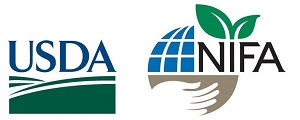The Vaccinium Coordinated Agricultural Project (VacCAP) is a massive undertaking, involving researchers from multiple U.S. academic institutions, USDA research centers, and international research partners. But what exactly is VacCAP, and how do we plan to assist the U.S. Vaccinium industry through our research?
VacCAP is a nationwide project aimed at developing new genetic tools to improve the fruit quality of cranberries and blueberries. Beginning with the Vaccinium Planning grant, the VacCAP mission and objectives have evolved through a process of active engagement among stakeholders and researchers.
In response to a breeding traits survey, stakeholders identified breeding cultivars with improved fruit quality as high priority, especially for fruit texture (firmness), sensory profile (flavor), shelf life, and appearance (color, size, free of disease damage).
The identification of fruit quality as a top priority by stakeholders was the major catalyst behind VacCAP’s conception. Cranberries—once relegated to the juice aisle and yearly appearance on Thanksgiving tables—are now popular as dried and sweetened additions to granola bars and cereals. But that pivot also meant a need for higher quality fruit, since sweet and dry cranberries have different processing requirements. Blueberries, meanwhile, struggle with inconsistent quality in fresh market fruit and reliance on hand harvesting—which makes up as much as 40 percent of production costs. More consistent quality and durable berries will be a huge improvement for the blueberry community.
Currently, U.S. Vaccinium breeders have little empirical data to assign more or less importance to fruit characteristics (FCs) and few tools to select for high fruit quality. Breeders needs access to molecular and genetic resources, like marker assisted selection, to help improve fruit quality traits.
Our research looks at identifying FCs (appearance, texture, chemical composition) that contribute to higher fruit quality (shelf life, consumer preferences) and identifying DNA markers that are associated with them. Vaccinium breeders will then be able to effectively select new cultivars with FCs that positively contribute to fruit quality and increase market value.
Long term, the resources developed during the project will increase production of high quality fruit that will benefit growers, processors, distributors, and consumers through improved production, harvesting and processing efficiency, and a more consistent consumer eating experience.














